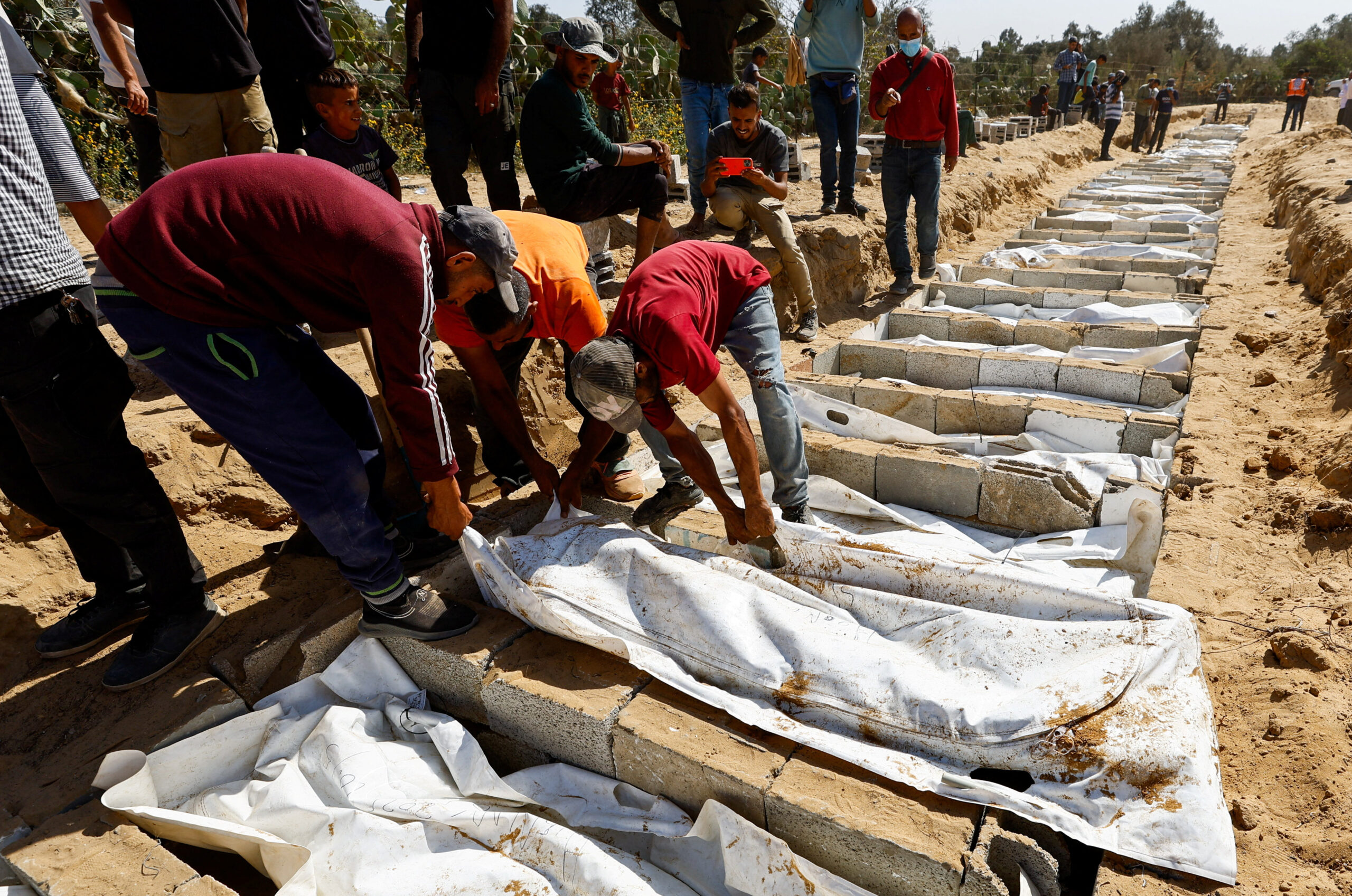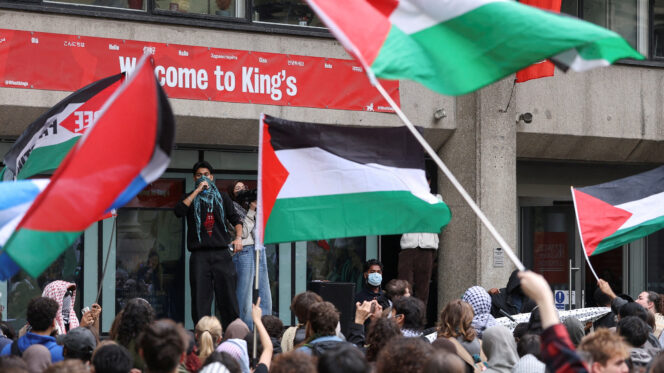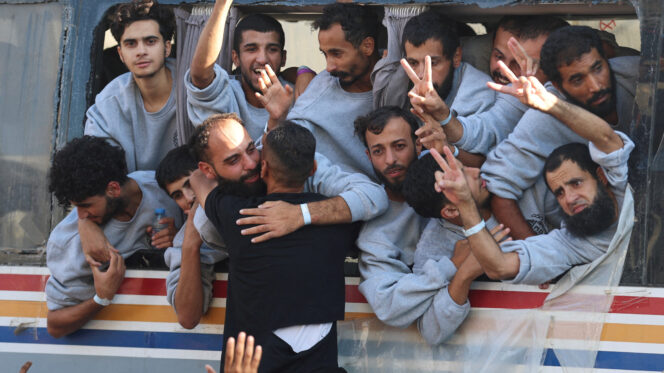Israeli Military Accused of Palestinian Organ Theft Again
Not for the first time.
by Harriet Williamson
29 October 2025

Israel has been formally accused of systematic organ theft by Gazan authorities, after the bodies of Palestinian detainees handed over by Israel as part of the ceasefire deal were allegedly missing eyes, corneas and internal organs.
While this may seem sensational or far-fetched at first glance, Israeli organ theft and necroviolence – defined as violence performed through the offensive treatment of corpses – against Palestinians is not a new concept.
Accusations and evidence of Israeli doctors harvesting Palestinian organs for profit, transplantation and research stretch back more than three decades and can be viewed as part of Israel’s wider treatment of Palestinians, an occupied people who are afforded little dignity in death as in life.
On 17 October, Gaza government media office director Dr Ismail al-Thawabta accused the Israel Defence Forces (IDF) of stealing organs from Palestinian corpses and called for an immediate international investigation “to hold Israel accountable for serious violations against the bodies of the martyrs and the theft of their organs”.
Of the 120 Palestinian corpses returned through the International Committee of the Red Cross (ICRC) over three days, al-Thawabta said bodies were missing parts including cochleas, corneas, livers and other organs, and that this confirmed the IDF “stole human organs while holding the bodies”.
According to the Mizan News Agency in Iran, Israel categorically denies these accusations.
The bodies were released as part of US president Donald Trump’s so-called ‘Gaza peace plan’ after two years of Israel’s genocidal war on Gaza killed a conservative estimate of 68,000 Palestinians. The first phase came into force on 10 October and includes a fragile ceasefire that Israel has breached more than 80 times.
Hamas released the 20 remaining living Israeli hostages and the remains of at least 10 dead hostages, in exchange for approximately 2,000 Palestinian detainees who were held in Israeli prisons – many without charge or trial.
Al-Thawabta also said “most [bodies] arrived in deplorable condition, showing evidence of field executions and systematic torture”. His description of the condition of returned Palestinian bodies is consistent with reported findings of other doctors: evidence of strangulation, hands and feet bound with plastic ties, blindfolds, detainees shot in the head at close range, signs of severe physical torture such as “fractures, burns and deep wounds” and bodies clearly “crushed under the tracks of Israeli tanks”.
Digging up mass graves.
Prior to the 10 October ceasefire, Israel was holding 735 Palestinian bodies – including 67 children’s corpses – according to the Palestinian National Campaign to Retrieve Martyrs’ Bodies. As of 23 October, Israel has repatriated 195 bodies of Palestinians to Gaza, but only 57 Palestinian families have managed to identify their loved ones.
Just days earlier, it was reported that 135 bodies of Palestinians had been returned from notorious torture prison Sde Teiman, a military base in the Negev desert, where Palestinians are imprisoned without charge or trial and subjected to cruel and inhuman treatment such as being held in cages, blindfolded, handcuffed, shackled to hospital beds and forced to wear nappies. The bodies of Palestinians were handed back mutilated.
The treatment of the deceased is at least partially covered by international law, and mutilation of corpses – which includes the non-consensual harvesting of organs – is a clear violation.
In armed conflict, the Fourth Geneva Convention states that all parties must take all possible measures to prevent the dead from being despoiled and mutilation of dead bodies is prohibited.
The UN principles regarding extra-legal, arbitrary or summary executions require the bodies of deceased persons be preserved and protected for investigation, while the UN’s Minnesota Protocol requires special care and attention in the recovery and handling of human remains. According to the Human Rights Committee, disrespectful treatment of human remains may also amount to cruel, inhuman or degrading treatment of the deceased’s family.
In November 2023, two months into Israel’s genocidal war on Gaza, the Euro-Med Human Rights Monitor tracked the IDF’s confiscation of dozens of dead bodies from the al-Shifa medical complex, the Indonesian hospital in the north of Gaza and others from around Salah al-Din Road – including by digging up mass graves. Some bodies were handed over to the ICRC but many, Euro-Med Monitor said, were kept by the Israeli army.
According to the rights group, medical professionals in Gaza who examined some of the bodies after they were released found evidence of organ theft including “missing cochleas and corneas as well as other vital organs like livers, kidneys and hearts”.
While doctors said it was impossible for them to conduct full analytical examinations of the bodies due to being under fire by the IDF and dealing with an influx of wounded civilians, they still detected “several signs of possible organ theft by the Israeli military”.
In January 2024, CNN reported IDF attacks on 16 cemeteries in Gaza and in the same month, Euro-Med Monitor stated that at least 12 cemeteries had been targeted by the IDF, deliberately bulldozing and desecrating hundreds of graves, and stealing and dismembering bodies. This followed a New York Times report on the IDF razing Gaza’s cemeteries without military justification – which constitutes a war crime.
January 2024 also saw at least 100 Palestinian bodies buried in a mass grave in Rafah after the IDF took them from hospitals and cemeteries in Gaza. Medical sources said that upon inspection, some bodies had organs missing.
In April 2024, the desecration of Palestinian bodies was highlighted again, this time in a statement from the Gaza Ministry of Religious Affairs accusing the IDF of mass corpse mutilation including carrying out postmortem decapitations and dismemberment. It described the IDF throwing bodies into a large pit and covering them in garbage, and said this practice was “documented in al-Shifa medical complex, Nasser medical complex and Kamal Adwan hospital”.
The Forensic Institute scandal.
Israeli government officials have admitted that Israel harvested the skin, corneas, heart valves and bones of Palestinians, Israelis and foreign workers in the 1990s – often without permission.
This shocking admission in 2009 came after state pathologist and director of the Institute of Forensic Medicine in Abu Kabir, Professor Yehuda Hiss, gave an interview to Nancy Scheper-Hughes, a professor of anthropology at the University of California-Berkeley, in 2000. Scheper-Hughes had helped to found the Berkeley Organs Watch project a year previously.
In the interview, Hiss was open about organ harvesting on behalf of the Israeli state, saying: “We started to harvest corneas .. whatever was done was highly informal. No permission was asked from the family.”
The Israeli organ harvesting story was picked up by Swedish newspaper Aftonbladet, which included allegations of young Palestinian men disappearing from villages in Gaza and the West Bank – particularly highlighting the case of Bilal Ahmad Ghanem who was killed by Israeli soldiers in 1992. Writer Donald Boström described “meeting parents who told of how their sons had been deprived of organs before being killed” and the bodies of young men being returned by the IDF for burial with slits from the abdomen to the chin.
Boström reported that relatives of the young men told him: “Our sons are used as involuntary organ donors.”
The Aftonbladet article linked the alleged theft of young Palestinian men’s organs to Israel’s historic shortage of organ donors – and the well-documented role of Israelis in the global illegal organ trade. In 2003, an international organ trafficking network was uncovered by police in South Africa, with Israelis as the beneficiaries of illegal transplants.
In the media firestorm that followed, Boström was accused of antisemitism and “blood libel”.
In response, Scheper-Hughes decided to publish the transcript of her 2000 interview with Hiss in CounterPunch magazine, showing that Hiss readily admitted to the non-consensual tissue, skin, bone and organ harvesting to serve the needs of the state of Israel.
When tape of Scheper-Hughes’ interview with Hiss was released to Israel’s TV Channel 2, the Israeli military said: “This activity ended a decade ago and does not happen any longer.”
Hiss also admitted in court to performing a second autopsy on American activist Rachel Corrie – who was killed by an Israeli bulldozer in 2003 – and keeping tissue and organs from her body.
Hiss’s protegee Dr Chen Kugel – who ended up whistleblowing on the Forensic Institute – also told Scheper-Hughes that although organs and tissues were in theory taken from everyone, in practice it was easier to steal organs from the occupied Palestinian population. Kugel said: “If there were any complaints coming from [Palestinian] families, they were the enemy and so, of course, they were lying and no one would believe them.”
Parliamentary hearings were held in Israel’s Knesset in December 2009 where health officials testified that Israeli authorities had stolen the organs of dead Palestinians and Israelis a decade previously for transplant purposes. However, Palestinian-Israeli politician Ahmed Tibi testified in the Knesset that organ theft had continued, citing the case of Fadul Ordul Shaheen, a Palestinian from Gaza who died of diabetes in 2009.
“When his body was given back to his family, his eyes were bleeding and there was a deep cut through his body,” Tibi said. “The family is saying that both the corneas and the kidneys were taken. I am asking you if you’re willing to look into this complaint and see if this activity is continuing, if organs are being harvested from Palestinian prisoners.”
Israel’s deputy health minister at the time, Yaacov Litzman, said the case would be investigated “with all seriousness”. Novara Media could find no available information about the outcome of an investigation or if one had taken place.
Allegations of Israeli organ theft stretch back even further, to the First Intifada which began in 1987. Another former Forensic Institute employee, Meira Weiss, wrote in her 2014 book Over Their Dead Bodies that the IDF “allowed [the Institute] to harvest organs from Palestinians using a military regulation that an autopsy must be conducted on every killed Palestinian. Autopsies were accompanied with organ harvest.”
Weiss also stated that many Forensic Institute workers “referred to the First Intifada as the ‘good days’, when organ harvesting was conducted consistently and freely compared to other periods”.
A legal framework.
Israel has a long history of holding onto Palestinian corpses and even passed a law to ensure the state can keep the bodies of Palestinians from bereaved families. It is the only country in the world besides Russia to have primary legislation that explicitly permits withholding of bodies as part of a wider counterinsurgency programme.
In March 2018, the Israeli parliament approved a law that allows the Israeli police to hold the bodies of Palestinians killed by the police or other security forces until families agree to preconditions on funeral arrangements.
This came after the Israeli High Court of Justice decided that while “there are a number of fundamental rights at stake, first and foremost human dignity” involved in the withholding of human remains, the state could explicitly legislate to authorise the violation of fundamental rights. The Knesset summarily did so.
At the time, Adalah – the Legal Center for Arab Minority Rights in Israel – and the Commission of Detainees’ and Ex-Detainees’ Affairs noted that the court’s decision “makes Israel’s ongoing violence of international humanitarian law possible”. They said while international law prohibits an occupying power from using bodies as “bargaining chips”, the court’s decision gives “a green light to the grave violation of the right of the families and the deceased themselves to a prompt and proper burial”.
In December 2024, the Knesset approved the preliminary reading of a bill that would prohibit the return of Palestinian bodies to their families if they were killed while attacking an Israeli. They would receive a mandated ‘burial’ in Israel’s infamous ‘Cemeteries of Numbers’- where hundreds of Palestinian bodies are stockpiled in mass graves marked with numbers rather than names.
The return of Palestinian remains as part of the ceasefire deal has reignited interest in Israel’s treatment of Palestinians in death, but it is not a new phenomenon. Israel has held onto the remains of Palestinians since the 1967 war – some in the ‘Cemeteries of Numbers’. Some withheld remains are of children.
The dehumanising treatment of the dead and its impact on families “amounts to a discriminatory practice of enforced disappearance, cruel and inhumane treatment of grieving bereaved families, and to an act of collective punishment against Palestinians”, according to rights group Al-Haq.
It was also reported in 2017 that Palestinians were not only buried in inaccessible cemeteries in closed military zones across Israel, but also held in freezers in Tel Aviv.
Speaking about the Israeli siege on Palestinian territories in 2019, Cameroonian philosopher Achille Mbembé said: “The most accomplished form of necropower is the contemporary colonial occupation of Palestine.” The Israeli state’s systemic violence against and control of Palestinians gives it the ultimate power over Palestinians’ lives – and their bodies after death.
Harriet Williamson is a commissioning editor and reporter for Novara Media.


